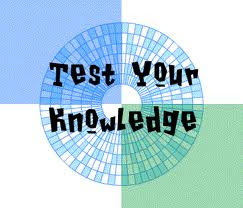 |
| Vowels |
We know the English vowels are a, e, i, o, u and sometimes y. Each of these letters can have a different sound, though the actual possibilities are quite limited. A is first, and can represent around three different sounds. In the word "game," we call the first vowel "long" and the second vowel "silent" (silent e is often added in writing to signal that the previous vowel is long, as in game or fame.) The long form of each vowel sounds exactly like each vowel's name. If vowels can have a long form, they can also have a short form. Hat uses the vowel in its short form, as does cat, fat, bat, rat, mat, bath, lab, cab, etc. The short form does not sound like the name of the vowel, but is more open sounding.
In addition to long and short forms, the first vowel "a" stands for other sounds as well. It can sound like "ah" as in father or like "o" in warm. Though warm is spelled with an a, the vowel sounds exactly the same as the "o" in storm: "It was a warm storm." Maybe you can think of other examples. But focus on mastering the long and short forms of each vowel first.
Repeat out loud to yourself long a: "date, fate, gate, hate, late, mate, date, fate, gate, hate, late, mate, date, fate, gate, hate, late, mate, date, fate, gate, hate, late, mate, date, fate, gate, hate, late, mate."
Repeat out loud to yourself short a: "bat, cat, fat, hat, mat, pat, rat, sat, vat, at, cat, fat, hat, mat, pat, rat, sat, vat, at, cat, fat, hat, mat, pat, rat, sat, vat, at, cat, fat, hat, mat, pat, rat, sat, vat, at, cat, fat, hat, mat, pat, rat, sat, vat."
Now, alternate the long and short forms: "a (as in fate), a (as in fat), a (as in fate), a (as in fat), a (as in fate), a (as in fat), a (as in fate), a (as in fat), a (as in fate), a (as in fat), a (as in fate), a (as in fat)." After alternating short and long sounds for a while, your jaw should feel the workout. After some practice, you can continue developing the muscle memory in your jaw by alternating the long and short vowel: "ay, ah, ay, ah, ay, ah, ay, ah, ay, ah, ay, ah,ay, ah, ay, ah, ay, ah,ay, ah, ay, ah, ay, ah,ay, ah, ay, ah, ay, ah,ay, ah, ay, ah, ay, ah"
Use the same principle with each of the vowels. Long "e" sounds like the name of the letter, and is usually highlighted by special spelling, such as meet, feet, seat, greet, beat, beet (the vegetable), beef, reef, bead. Notice the "e" is always partnered with another letter, either a duplicate or another vowel. The short form sounds like "eh" as in bed, fed, led, bet, let, met, jet,net, etc. As with the first vowel "a", the second vowel "e" has a long sound and a short sound: "eee" as in meet and "ehhh" as in met. The second vowel also represents other sounds besides the basic two, and there are exceptions. For example, "dead" has a partner vowel but is nevertheless pronounced using short e. sounding like bed: "He was dead in bed." Head is another example. Why these oddities? Because completely different words use the long form of "e." When you pay off your house, you get the deed, which sounds like feed and seed. So we must pronounce head like bed and ignore the spelling completely. E can sound like A: You can weigh your vegetables, or you can lose your way, perhaps on the highway. But focus on the basic long and short forms. You can learn exceptions later.
Substitute E for A in the exercises above. Finally you will master "eee. eh, eee. eh, eee. eh, eee. eh, eee. eh, eee. eh, eee. eh, eee. eh, eee. eh, eee. eh, eee. eh, eee. eh, eee. eh, eee. eh, eee. eh, eee. eh. Follow the same pattern for the other three vowels. At that point you will be able to accurately recite the long and short forms of each of the five main vowels. Y usually sounds like I or E so the sound is not really different.
The word examples are for reference only-- just practice the vowel sounds, no consonants:
- Ay - A (fate, fat)
- Ee - Eh (meet, met)
- I -ih (kite, kit)
- Oh - ah (hope, hop)
- Yu - uh (cute, cut)
Let me know if this helps you! After the basic vowel forms, you can learn the consonant sounds the advanced vowel forms. Once you know these, you have mastered all the sounds used in the English language. Phonics is the study of spoken language that focuses mostly on the sounds themselves. After all, that is how we all learn to talk. Watch this video again, and watch a small mirror while you pronounce the vowels. Is your mouth moving the same way?















